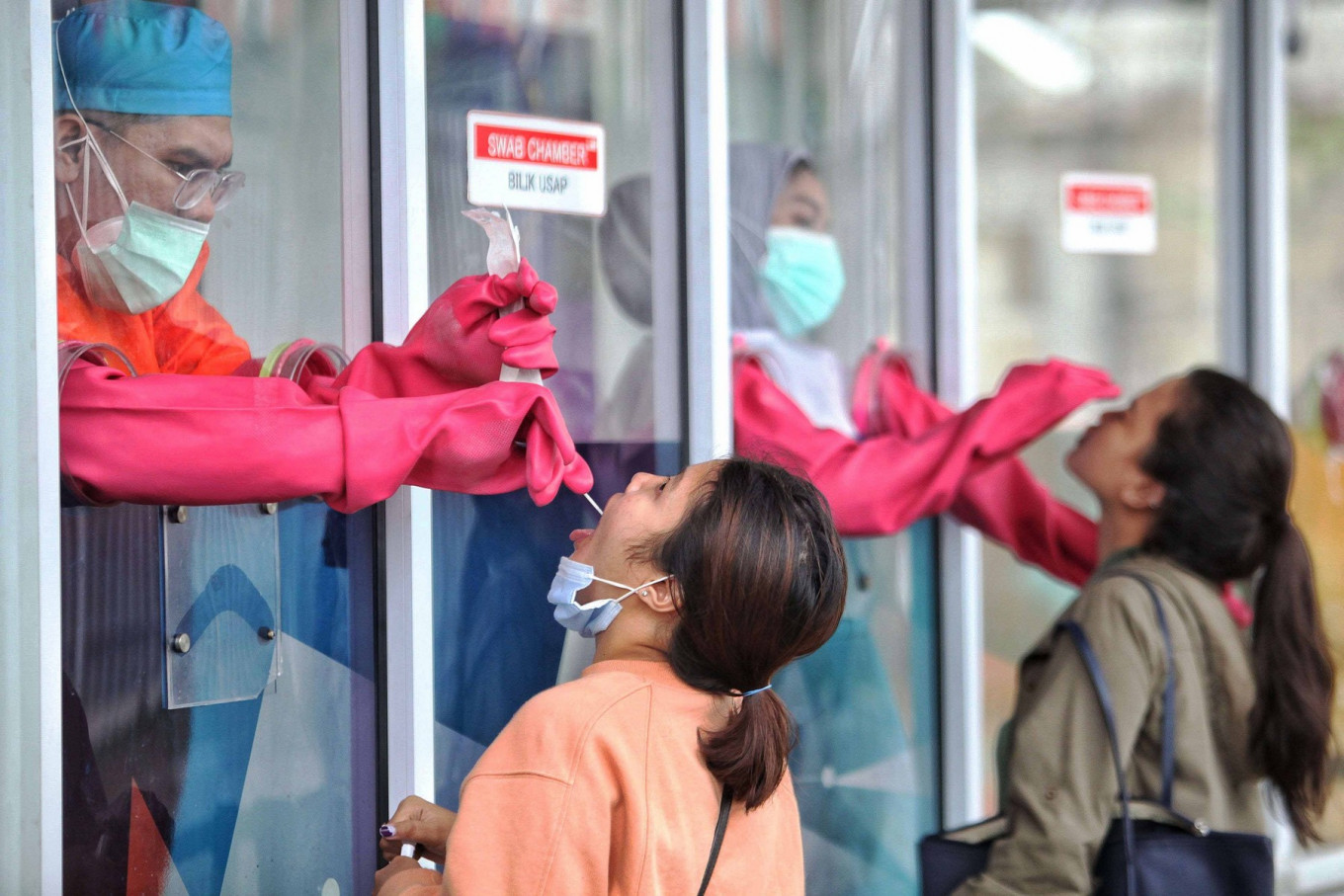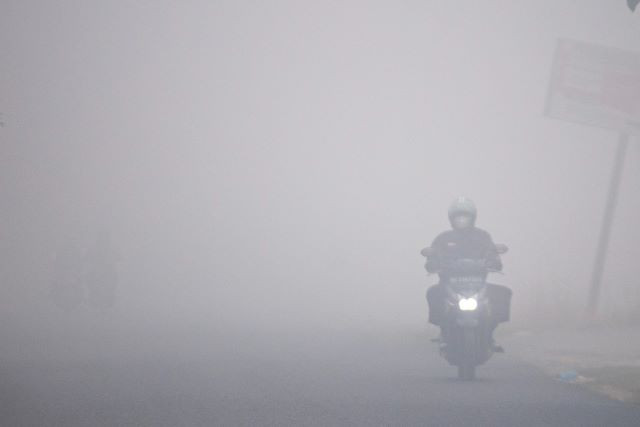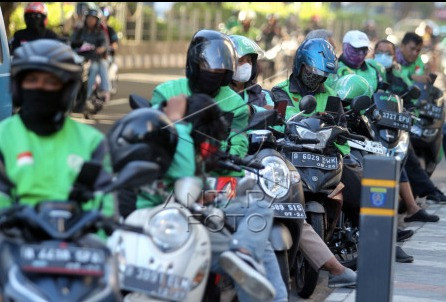Ending the stigma
To avoid the stigma, many have resisted testing and tracing, refused hospitalization and seized the dead bodies of loved ones from the hospital to prevent them from being buried under COVID-19 protocols.
Change Size
 Medical staff take swab samples from two women at the Genomik Solidarita Indonesia (GSI) laboratory in Jakarta on Oct. 3. The government has set the price ceiling for individually requested COVID-19 swab tests at Rp 900,000 (US$60.60) to eliminate price disparities following concerns over the high cost of tests at private laboratories. JP/Seto Wardhana (JP/Seto Wardhana)
Medical staff take swab samples from two women at the Genomik Solidarita Indonesia (GSI) laboratory in Jakarta on Oct. 3. The government has set the price ceiling for individually requested COVID-19 swab tests at Rp 900,000 (US$60.60) to eliminate price disparities following concerns over the high cost of tests at private laboratories. JP/Seto Wardhana (JP/Seto Wardhana)
O
ne of the challenges Indonesia has faced in its decades-long fight against HIV/AIDS is the stigma that accompanies the disease. Often, the public takes things into its own hands by sending those who test positive into exile, branding them as a source of problems and a burden.
A similar phenomenon is occurring as the country struggles to contain the spread of COVID-19, which since early March has infected more than 378,000 and killed nearly 13,000. In some countries, the stigma has even developed into prejudice against Asians, simply because the pandemic began in Wuhan, China.
A survey conducted in August by the LaporCOVID-19 (Report COVID-19) community, in collaboration with researchers from the University of Indonesia (UI) Faculty of Psychology, discovered that stigma surrounding COVID-19 patients and survivors did not subside.
Needless to say, ending the pandemic is impossible without addressing the stigmatization and prejudice COVID-19 patients face. To avoid the stigma, many have resisted testing and tracing, refused hospitalization and seized the dead bodies of loved ones from the hospital to prevent them from being buried under COVID-19 protocols.
On Nov. 19, the Jakarta administration will begin enforcing a new bylaw that stipulates a maximum fine of Rp 7.5 million for obstructing measures to tackle contagion, such as refusing polymerase chain reaction (PCR) tests, COVID-19 treatment, vaccination or isolation.
The city government previously issued a gubernatorial regulation that outlined punishments for people who did not wear masks in public and business owners who failed to enforce social distancing in workplaces. The penalties ranged from one hour of community service and progressive fines to the withdrawal of business permits. But according to the 2011 Regional Government Law, only regional bylaws or higher levels of regulation can legally establish fines.
West Sumatra and now Jakarta are the only provinces that have enacted bylaws to deter people from undermining the government’s efforts to win the battle against COVID-19. The 2018 Health Quarantine Law also stipulates punitive measures, which include imprisonment, to ensure public compliance with health protocols, but the law has been enforced only once, against Tegal legislative council deputy speaker Wasmadi Edi Susilo, for holding a dangdut concert that attracted a huge crowd last month.
The Jakarta government has less than one month to familiarize people with the new bylaw, but doubts have already emerged about whether it will be an effective deterrent. Problems with laws and regulations often rest with their inconsistent implementation. More efforts are needed to educate the public about the virus, how it is transmitted and the danger it poses to their health rather than resorting to punishment. Perhaps people do not follow the health protocols because they know little about the virus in the first place.
It is the incomplete understanding of the disease, in addition to misinformation circulating on social media and in social interactions that has allowed the COVID-19 stigma to persist. Health workers, formal and informal leaders, academics and other elements of society need to join forces to end the stigma and win the war on the pandemic.









